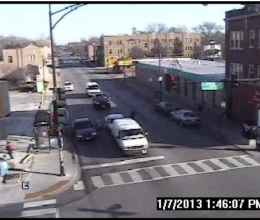The criminal justice system is broken and in urgent need of reform, according to a strong bi-partisan majority of Illinois voters from across the State. Moreover, Illinois voters want the legislature to act immediately to take steps to reduce the number of people incarcerated, and are willing to support wide-ranging and dramatic reforms to address the problems in the system.
These findings are contained in results of a formal ACLU of Illinois poll, conducted just before the 2015 holidays. The findings below suggest that voters across the state are anxious for leaders in Springfield to take action to fix these problems, believing that reform will improve safety in neighborhoods across Illinois.
Methodology
Benenson Strategy Group conducted 800 telephone interviews from December 11-16, 2015 on behalf of the American Civil Liberties Union of Illinois. All respondents were registered voters in Illinois who are likely to vote in the 2016 presidential election. The margin of error for the data set is ±3.39% at the 95% confidence level and it is higher among subgroups.
Key Findings
A bipartisan majority of Illinois voters across the state believe the criminal justice system in the state is broken and needs immediate reform.
- 74% of all voters agree that “the criminal justice system in Illinois is broken.” This includes 76% of Democrats, 74% of independents, and 70% of Republicans.
- This view is shared across the entire state: 82% of Chicago residents agree, as do 80% of Cook County suburban residents, 76% of Chicago collar county residents, and over 6 in 10 residents in north and south Illinois.
-
This leads voters to seek immediate action for reform:
- 60% say the criminal justice system in Illinois “has serious problems that need to be addressed immediately.”
- 31% say the system “has some problems that need to be addressed eventually.”
- Only 5% say it “is working well.”
As a result, voters are looking for the state legislature to take action on criminal justice reform.
-
69% say it should be a “top” or “high” priority for the state legislature to pass laws to help reduce the prison population in Illinois, including 84% of Democrats, 65% of Independents and 52% of Republicans.
-
When asked about the impact that reducing the prison population would have, a majority say it would help, rather than hurt, communities.
| Would making reforms that reduce the prison population... |
All Voters
|
| Help communities by saving taxpayer dollars that can be reinvested into preventing crime and rehabilitating offenders. |
58%
|
| Hurt communities because criminals who belong behind bars could be let out. |
30%
|
-
Support for reducing the prison population derives from the fact that voters think sentences for non-violent offenses are too long and that non-violent offenders aren’t getting the help they need in prison.
-
A plurality, 46%, say prison sentences in Illinois for non-violent offenders are “too long,” compared to 30% who say “about right” and 8% who say “not long enough.”
-
83% agree (47% strongly) that, “if we stopped imprisoning people who aren’t truly dangerous and treated the addictions or lack of opportunities that lead people to commit crime in the first place, we could make our communities safer.”
-
As a result, there is strong support for diverting non-violent offenders away from prison and for reclassifying drug possession from a felony to a misdemeanor.
| Support for policy proposals |
All Voters
|
| Diversion for non-violent offenders Send people who commit non-violent crimes, such as minor drug possession or theft up to $2000, to community service or treatment programs instead of prison. |
88%
|
| Reclassification of drug possession Change sentences for possession of a small amount of drugs from a felony to a misdemeanor. |
78%
|
-
Support for these reforms also extends across party lines:
-
89% of Democrats, 90% of independents, and 82% of Republicans support diversion for non-violent offenders.
-
79% of Democrats, 78% of independents, and 74% of Republicans support reclassification of drug possession.
-
Voters in Illinois see a broken criminal justice system that puts too many people in prison for too long, and they are looking to the state legislature to take action and pass commonsense reforms that would reduce the number of people in prison.
